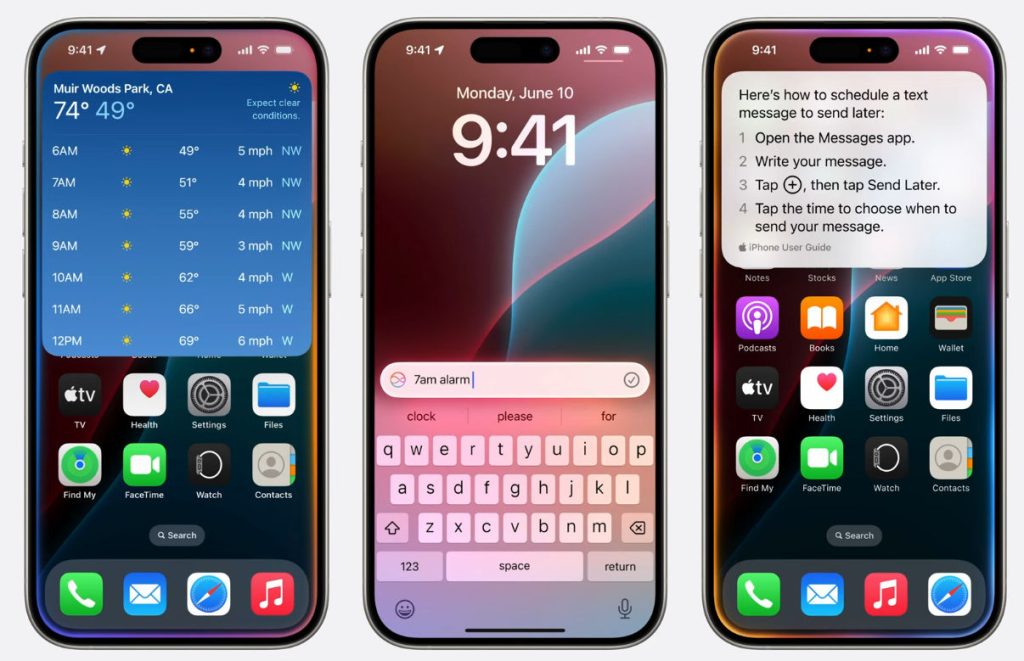
In a detailed new report on Apple’s AI initiatives, Bloomberg’s Mark Gurman reveals internal challenges, leadership conflicts, and postponements that have slowed the company’s development of Apple Intelligence.
A Late Start and Internal Resistance
Apple, which was an early mover with Siri, has gradually lagged behind in the fast-evolving AI landscape. Gurman notes that the company was slow to embrace the rise of generative AI, partly due to initial skepticism from key leaders such as software head Craig Federighi. He was reportedly “reluctant” to invest heavily, believing AI wasn’t a “core capability” and that it might divert focus from Apple’s other priorities.
Several senior executives reportedly expressed similar reservations, with one longtime leader noting that AI requires upfront investment without a clear picture of the end product—an approach that conflicted with Apple’s traditional product-first mindset. Despite some viewing AI as a “revolutionary” shift, their attempts to convince Federighi were said to have had little impact.
Apple’s AI chief John Giannandrea, who joined from Google in 2018, also faced internal friction. While he pushed for greater investment and tried to unify AI efforts under a single division, his progress was often hindered, according to the report.
Apple Intelligence Launch Issues
Apple Intelligence was introduced at WWDC 2023 with features like writing assistance, smart notifications, custom emoji, and Siri upgrades.
The initiative, dubbed “AI for the rest of us” in nod to the original Mac slogan, faced delays as most of its features missed their planned launch dates.
For example:
- AI writing tools and summarizations arrived a month and a half after iPhone 16’s launch.
- Genmoji launched in December 2023.
- Notification upgrades came only in March 2024.
Siri’s much-awaited upgrade has been delayed repeatedly. Gurman notes that in early 2025, Federighi tested iOS 18.4 and found that many highlighted features—such as retrieving a driver’s license number via voice—weren’t functioning. Internal demos had shown pre-recorded videos instead of working tech. The release was postponed indefinitely.
Apple continued promoting these features, leading to class-action lawsuits alleging false advertising.
What to Expect at WWDC 2025
Gurman reports that Apple is “unlikely” to focus much on Siri during WWDC 2025. Promised updates remain months away from launch. Rather than major changes, Apple plans to launch iOS 19 and gradually expand Apple Intelligence capabilities to additional apps.
Planned updates include:
- An AI-powered battery optimization tool.
- Project Mulberry—a virtual health coach.
- A new setting for European users to replace Siri with third-party voice assistants (distinct from Siri’s ChatGPT integration).
- Continued work on “LLM Siri,” aimed at fixing underlying issues with the assistant’s core architecture.
Despite this, Apple reportedly intends to separate Siri from the Apple Intelligence brand in marketing—an acknowledgment that Siri’s reputation may hurt its AI efforts. The company prefers not to reveal features long before they are ready to launch.
Missed Opportunities and Broader Struggles
Gurman’s report goes deeper, noting that Apple has fewer AI-focused staff and less investment in GPUs compared to rivals. Efforts to acquire companies like Mobileye Global Inc. failed to materialize. Although Apple built the Apple Neural Engine as part of its car project, many plans, including autonomous driving, were ultimately shelved.
Some insiders likened the company’s AI struggles to a “sinking ship.” Apple’s traditional approach—meticulously building polished products—hasn’t worked well in the fast-moving world of AI. Longtime executive Eddy Cue reportedly warned that Apple’s dominance is at risk. In his testimony, Cue expressed concern that the iPhone could be irrelevant within ten years.
Origins of Siri and Unrealized Vision
Siri, once a promising innovation introduced just before Steve Jobs’ passing, never fully evolved. While Jobs envisioned it as a key user interface, post-launch development focused on basic tasks. Early ambitions, such as becoming a seamless “do engine,” faded as Apple emphasized other machine learning projects like Maps, Photos, and biometric features.
Efforts to integrate AI more deeply into iOS around 2014 reportedly met resistance from Federighi. While Apple acquired smaller AI startups like Turi and Tuplejump, its overall investment lagged behind competitors. Some executives now see this as part of a deeper structural issue: AI’s demand for rapid development and experimentation doesn’t fit Apple’s traditional model.
Gurman’s Conclusion
Gurman concludes that while Apple still holds significant resources and market presence, its delays and missteps in AI have cost it leadership in a fast-evolving space. He believes Apple will continue expanding Apple Intelligence over the coming years—but not without more internal restructuring, clearer strategy, and timely execution.
Gurman expects Apple to make a stronger AI push soon, but for now, much of its vision remains a work in progress.
